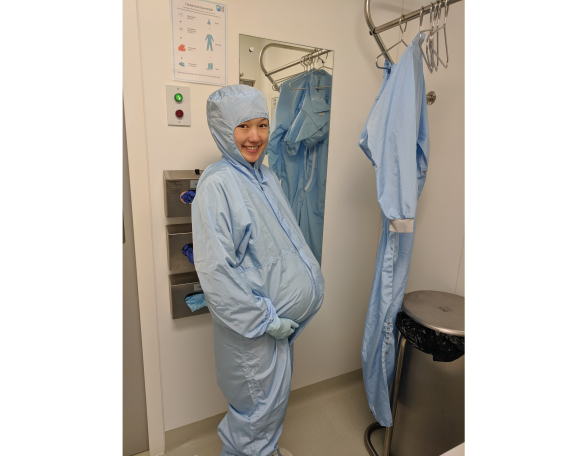Who am I?
- Institution: Royal Holloway University of London
- Role: Lecturer
- Website: royalholloway.ac.uk/queenie-hoi-shan-chan
What is your job?
Other than a mother of two (yes that’s a job), I am a lecturer in the Department of Earth Sciences at Royal Holloway University of London. I study how life’s simple building blocks are turned into increasingly complex molecules that ultimately yield life. It is difficult to refine the scope of my research into a single discipline, so I describe myself as a meteoriticist, planetary scientist, astrobiologist, cosmochemist, depending on the occasion. As my research involves the study of extraterrestrial organic matter, most of my research time is spent on being a germophobe - I am very wary of keeping my lab space spotless, and being extremely critical at identifying extraterrestrial matter from terrestrial contamination. I also study tiny space dust and extraterrestrial samples returned to Earth by space missions.
How did you end up studying meteorites?
As a kid I have always wanted to become a scientist, to observe and understand the wonders of nature. I got a bachelor degree in Earth Sciences which looked at how different aspects of the Earth interact. I was trained to study rocks in depth, and at the end of my undergraduate study, I wanted to further utilise my petrologic skills, but at this time, on materials beyond the Earth. I ended up studying organic matter in organic-scarce meteorites during my PhD at Imperial College London, and then furthered my meteoritic research on water bearing meteorites at NASA Johnson Space Center.
What do you enjoy about your job?
I enjoy meteoritic research “not because they are easy, but because they are hard”. My research allows me to utilise rare skills to unfold mysteries about outer space objects, and to look back in time to understand what it was like at the birth of our solar system. I also love to be involved in space missions, crushing and powdering materials brought back to Earth from foreign worlds, let it be the Moon, an asteroid, a comet, the planet Mars.
What is your favourite meteorite?
Murchison, for it is The meteorite being extensively studied for organic molecules for decades. It has shaped the bulk of our current understanding of the organic content of meteorites. Murchison fell to Earth in 1969, the same year when we celebrated the return of the first lunar samples by the Apollo 11 mission, and since then, a plethora of organic compounds have been discovered in meteorites, including molecules essential to life like amino acids.
What are your hobbies?
Other than playing with my children (and yes that’s a hobby too), I enjoy exploring different board games with friends and family. I also like watching anime, and I learned many interesting Japanese words from that. And Lego, I bought Lego for my kids so I can play.



